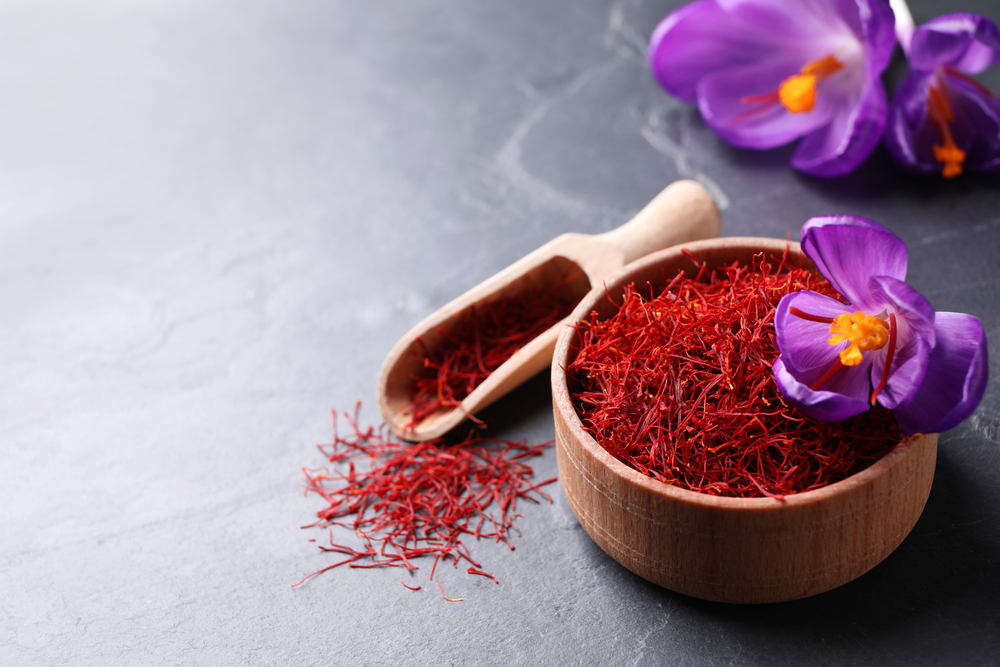The Benefits and Uses of Saffron: A Natural Wonder Spice
Saffron, often referred to as the “king of spices,” is one of the most expensive and treasured spices globally. Known for its vibrant yellow color, unique flavor, and potent medicinal properties, saffron has been used for centuries in culinary dishes, traditional medicine, and beauty treatments. Saffron is derived from the Crocus sativus flower, and its production process is labor-intensive, which contributes to its high cost. In this blog, we will explore the various health benefits and uses of saffron, making it clear why it deserves a spot in your pantry and wellness routine.
What Makes Saffron So Expensive?
The high price of saffron can be attributed to the meticulous process of harvesting. Each flower produces only three saffron threads (stigmas), which must be handpicked. To produce just one pound of saffron, approximately 75,000 flowers are required. This labor-intensive process, combined with the delicate nature of the saffron threads, explains why saffron is considered one of the most expensive spices in the world.
Saffron’s distinctive aroma and flavor make it a favorite ingredient in various cuisines, especially in Mediterranean, Middle Eastern, and South Asian cooking. It is widely used in dishes like risotto, paella, biryani, and saffron-infused desserts.
Health Benefits of Saffron
Saffron is not only a valuable spice in the kitchen but also a potent natural remedy with numerous health benefits. Below are some of the most notable benefits of saffron.
Rich in Antioxidants
Saffron is packed with powerful antioxidants, which help protect the body from the harmful effects of oxidative stress caused by free radicals. These antioxidants, including crocin, safranal, crocetin, and kaempferol, play a significant role in reducing inflammation, preventing chronic diseases, and promoting overall health. By incorporating saffron into your diet, you can support your body’s ability to combat oxidative damage and maintain vitality.
Improves Mood and Reduces Depression
Saffron has been shown to have mood-boosting properties. Several studies have found that saffron can be just as effective as antidepressant medications in treating mild to moderate depression. A study published in the Journal of Affective Disorders found that saffron supplementation led to significant improvements in mood and emotional well-being. The active compounds in saffron, particularly safranal, help regulate serotonin levels in the brain, providing natural relief from depression and anxiety.
Cancer-Fighting Properties
The antioxidants in saffron may also play a role in reducing the risk of cancer. Studies have shown that the compounds in saffron, especially crocin and safranal, can help prevent the growth of cancer cells and suppress tumor formation. Saffron’s anticancer properties are particularly effective in combating cancers such as breast cancer, prostate cancer, and lung cancer. While more research is needed, saffron shows promise as a natural cancer-fighting agent.
Supports Heart Health
Saffron is also beneficial for cardiovascular health. The antioxidants in saffron help reduce cholesterol levels and lower blood pressure, which are key factors in maintaining a healthy heart. Saffron has been shown to improve blood circulation and reduce the risk of heart disease. Additionally, saffron may help regulate blood sugar levels, making it beneficial for those with diabetes or those at risk of developing the condition.
Enhances Digestion
Saffron has been used for centuries as a digestive aid. It can help stimulate the production of gastric juices and improve overall digestion. Saffron is also known to relieve symptoms of indigestion, bloating, and constipation. By including saffron in your diet, you can support healthy digestion and alleviate digestive discomfort.
Improves Skin Health
In addition to its internal health benefits, saffron is also beneficial for skin health. Saffron has been used in traditional beauty treatments for centuries to brighten the complexion, reduce pigmentation, and treat acne. The antioxidants in saffron help fight the signs of aging by reducing fine lines and wrinkles, while its anti-inflammatory properties soothe irritated skin.
How to Use Saffron in Your Diet
Incorporating saffron into your daily diet is easy and can enhance both the flavor and nutritional value of your meals. Here are a few ways to use saffron:
Saffron Milk: Add a few strands of saffron to warm milk and drink it before bedtime. This soothing drink is known to improve sleep quality and promote relaxation.
Saffron Tea: Brew saffron with a few other herbs like ginger or chamomile to make a flavorful and health-boosting tea.
In Cooking: Saffron can be used to flavor rice, soups, stews, and even desserts like cakes and ice cream.
Saffron Oil: You can infuse saffron into carrier oils and use it for massage or skincare.
Saffron is much more than a culinary spice—it’s a powerful natural remedy with numerous health benefits. From its potent antioxidants that protect the body to its mood-boosting and cancer-fighting properties, saffron offers a variety of health advantages. Whether you add it to your food, drink, or skincare routine, saffron is a valuable addition to your wellness journey.
If you’re looking for premium quality saffron, consider Basu Kesar Co. saffron, which is sourced from the renowned saffron-growing region of Pampore, Jammu & Kashmir. Experience the true power of saffron and enjoy its incredible benefits in every thread.

